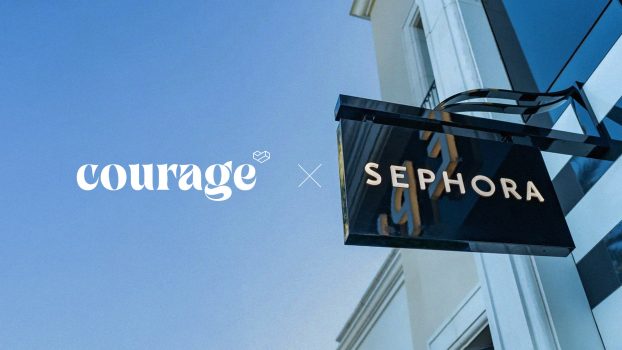Small brewers in Ontario will soon have an easier time getting their suds into retail distribution. This is thanks to the provincial government, which last month abolished an antiquated listing fee charged to suppliers by The Beer Store network. The resulting savings should make it more affordable for microbrewers to place their products in more stores, and free up money to expand their marketing efforts.
The Beer Store, a chain of more than 500 retail outlets across Ontario, is owned by the country’s two largest brewers, Molson Canada and Labatt Breweries of Canada. The only other retail channels for beer in the province are through the government-owned Liquor Control Board of Ontario (LCBO) stores and directly from the breweries themselves.
The rules for selling beer vary from province to province. Saskatchewan allows retail sales only through its government stores, whereas Alberta allows beer to be sold through a variety of privately owned and government stores. B.C. allows some private retailing through pub ‘off-sales’, while Quebec has long allowed beer and wine to be sold through a variety of private retailers, including corner stores.
The Beer Store network sells about 90% of the beer in Ontario that’s not sold through bars and restaurants.
Since the end of the Second World War, brewers in Ontario have paid a $105 per-brewery, per-store fee to the provincial Alcohol and Gaming Commission to cover the cost of a daily, manual, inventory-taking process. The process has, however, been computerized for quite some time and many small brewers have argued that the fee is both unnecessary and onerous.
‘The fee was set up to cover the cost of (labour),’ explains John Wiggins, chair of the Ontario Association of Small Brewers, which lobbied the government to drop the levy. ‘Now it’s antiquated. (The fee) should have disappeared when the service disappeared.’
‘For a company like Molson, the fee was a mere irritation,’ says Tim Taylor, president of Taylor & Bate Brewery in St. Catharines, Ont. But for smaller breweries like his, he says, the cost is a real barrier.
Taylor & Bate was founded by Taylor’s great-grandfather in the 1830s, but bought in 1935 by a company that became part of Carling Breweries. Shut down for 50 years, Taylor opened the brewery again in 1988, two doors down from the original plant. The company now produces 3,000 hectolitres of beer a year, mostly Niagara Spray lager, from his great-grandfather’s recipe.
In the wake of the fee cut, Taylor & Bate plans to expand its distribution from the 30 Beer Stores in its immediate vicinity to 200 stores across the province in the next year. ‘It would have become prohibitive if, on an annual basis, [the fee for selling in 200 stores] was $20,000,’ he says.
The change is all the more dramatic when compounded with another fee change made last year by The Beer Store, which adjusted a one-time, per-brand listing fee of almost $24,000. Today, brewers pay a one-time listing fee of $2,500, plus $200 for every store they sell through, to a maximum of just under $25,000 per brand.
Before the changes, Taylor’s brewery would have paid about $27,000 to list Niagara Spray in 30 Beer Stores, ($24,000 plus 30 x $105). Under the new system, entering those 30 initial stores would have cost just $8,500 ($2,500 one-time fee, plus 30 x $200).
Gary McMullen, a former armed forces aerospace engineer who, in the wake of military cutbacks, decided in 1996 to start his own brewery, Lakes of Muskoka, says his Bracebridge, Ont. company would have had an easier time getting started had the inventory fee not been in place.
‘If the fee structure hadn’t been there in 1996, we probably would have gone into (Beer Stores) immediately,’ says McMullen, whose brewery now produces 10,000 hectolitres a year of Cream Ale and Steam Beer. Although the beers were sold through the LCBO from the start, they weren’t available at The Beer Store until November 1998.
Both Taylor and McMullen say they spend little money on advertising, instead relying on in-bar promotions and on tastings at provincial liquor stores.
While Beer Stores don’t currently allow sampling, the LCBO does – the one stipulation being that brewers buy their samples from the store. Cancelling the store fees will let brewers enter more stores, and free up money to do more sampling, McMullen says.
Beer Stores also provide better returns on each sale than LCBO stores. McMullen says his company makes about a dollar more on a six-pack by selling through The Beer Store than it does through the LCBO. Today, Lakes of Muskoka attributes 35% of its sales to 200 Beer Store outlets, and the fee removal means it will be able to expand its distribution from warehouses in Gravenhurst, Ont., Ottawa and Toronto.
On top of tastings and promotional material in bars and restaurants, Lakes of Muskoka runs local print ads, and is getting ready to launch its first radio spots later this year.
‘We’re going to do a campaign in our own backyard in Muskoka,’ McMullen explains, ‘but we’re also looking at doing one in Toronto, one in Ottawa and one in Kingston. We’re not looking to knock the doors down at this point – we’re looking for a more moderate 20% (growth rate) this year.’
It’s probably a good time to make a move. Beer drinkers are following other consumers into premium categories, says Bob Scott of Toronto’s Ascot Marketing.
‘People are trending up from regular coffees to special coffees, blended malts to single malts, sparkling wine to Champagne, and from regular beer to premium beer,’ he says. ‘The category is on a roll.’



























